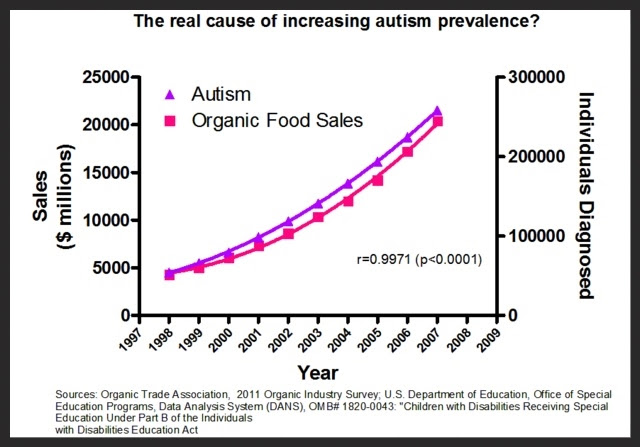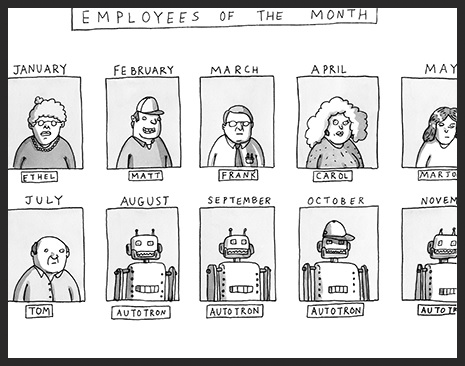Environmental Industry: Deflation or Inflation - Which Will It Be?
Environmental Industry: Deflation or Inflation - Which Will It Be?
I continue to believe that the American people have a love-hate relationship with inflation. They hate inflation but love everything that causes it. - William E. Simon
"It's a recession when your neighbor loses his job; it's a depression when you lose yours." - President Harry S. Truman
Inflation
Wikipedia defines inflation as "A rise in the general level of prices of goods and services in an economy over a period of time. When the general price level rises, each unit of currency buys fewer goods and services."
I noticed the price of disposable gloves go went up
 about $1 per box in the last year and the price of sampling tubing has gone up about $0.02 per foot. I could pull out my old "Economics 101" book from my years at Western Michigan University (now about 28 years old) and go through the reasons behind this "inflation" of prices, but I won't bore you with that. We all know, for the most part, it's pretty straight forward. Your costs go up so you have to raise your prices. Which then, in turn, makes others' cost go up. It's a viscous cycle. Besides the cost of disposable materials, for us as a company, the most significant impact on our bottom line has been the cost of gas and diesel fuel. I think I can speak for most companies and individuals that the price of fuel is the most obvious cost increase and the one that's the hardest to offset. We still have to drive to the site and we all still have to drive to work.
about $1 per box in the last year and the price of sampling tubing has gone up about $0.02 per foot. I could pull out my old "Economics 101" book from my years at Western Michigan University (now about 28 years old) and go through the reasons behind this "inflation" of prices, but I won't bore you with that. We all know, for the most part, it's pretty straight forward. Your costs go up so you have to raise your prices. Which then, in turn, makes others' cost go up. It's a viscous cycle. Besides the cost of disposable materials, for us as a company, the most significant impact on our bottom line has been the cost of gas and diesel fuel. I think I can speak for most companies and individuals that the price of fuel is the most obvious cost increase and the one that's the hardest to offset. We still have to drive to the site and we all still have to drive to work.
In the past, pay raises have helped individuals offset inflation. Yet I know many people that have not seen a raise in a year or more and many employers have imposed pay freezes in an effort to cut, or at least hold, their costs. A pay freeze during an inflationary period might as well be a pay cut, as the purchasing power of your income loses ground against everyday expenses such as filling up your tank. It's not just us working stiffs that are feeling the pinch, people like my semi-retired mother on a mostly fixed income are being squeezed too as their fixed incomes lose ground against rising prices.
But on the other hand;

Deflation
Wikipedia defines deflation as "A decrease in the general price level of goods and services. Inflation reduces the real value of money over time; conversely, deflation increases the real value of money. This allows one to buy more goods with the same amount of money over time."
Put simply, deflation means that prices decrease. A slowing economy causes demand to slow and prices to fall. Falling prices usually means lower revenue and profit margins for companies, which as we know leads to layoffs, less hiring, stagnant wages, and outright pay cuts. With sales down, firms have to cut prices even more to get business.
For certain items like housing, the worst part comes when everybody realizes that prices are falling, because nobody wants to buy something today if it will be cheaper tomorrow. That's why our housing market is in the dump. When prices are falling, you've already lost money on your housing investment the day after your big purchase. Buyers would rather sit on the sidelines and wait for prices to bottom out. But where is the bottom? This tends not to apply to items like food. It's hard to delay, for long anyway, the need for food.
So Which Is Going On In The Environmental Industry?
Well...... the answer is....both!
Yes the price of materials and gas is going up, causing environmental firms to increase costs when setting their fees. Costs for health care for their employees is rising dramatically, these costs too have to be  passed on. However, at the same time, technologies have evolved and continue to be developed that are reducing the amount of equipment and manpower required to complete certain tasks. Communication and data management techniques are being implemented that save tremendous amounts of time in collecting, compiling and presenting data. Significant advances in remediation systems and operation and maintenance and automation have been developed. The cost to install the average remediation system now is less than it was 10 years ago and, it will likely work better now than it did 10 years ago. Technology, if applied right, lowers cost. Emphasis on the "applied right". Buying an employee a new state of the art laptop with all the bells and whistles won't make him/her more efficient if he/she still spends too much time on Facebook.
passed on. However, at the same time, technologies have evolved and continue to be developed that are reducing the amount of equipment and manpower required to complete certain tasks. Communication and data management techniques are being implemented that save tremendous amounts of time in collecting, compiling and presenting data. Significant advances in remediation systems and operation and maintenance and automation have been developed. The cost to install the average remediation system now is less than it was 10 years ago and, it will likely work better now than it did 10 years ago. Technology, if applied right, lowers cost. Emphasis on the "applied right". Buying an employee a new state of the art laptop with all the bells and whistles won't make him/her more efficient if he/she still spends too much time on Facebook.
 passed on. However, at the same time, technologies have evolved and continue to be developed that are reducing the amount of equipment and manpower required to complete certain tasks. Communication and data management techniques are being implemented that save tremendous amounts of time in collecting, compiling and presenting data. Significant advances in remediation systems and operation and maintenance and automation have been developed. The cost to install the average remediation system now is less than it was 10 years ago and, it will likely work better now than it did 10 years ago. Technology, if applied right, lowers cost. Emphasis on the "applied right". Buying an employee a new state of the art laptop with all the bells and whistles won't make him/her more efficient if he/she still spends too much time on Facebook.
passed on. However, at the same time, technologies have evolved and continue to be developed that are reducing the amount of equipment and manpower required to complete certain tasks. Communication and data management techniques are being implemented that save tremendous amounts of time in collecting, compiling and presenting data. Significant advances in remediation systems and operation and maintenance and automation have been developed. The cost to install the average remediation system now is less than it was 10 years ago and, it will likely work better now than it did 10 years ago. Technology, if applied right, lowers cost. Emphasis on the "applied right". Buying an employee a new state of the art laptop with all the bells and whistles won't make him/her more efficient if he/she still spends too much time on Facebook.
Analytical prices have, for the most  part, remained unchanged since the mid 1990's. Huge technological advances have been made when it comes to chemical analysis allowing costs to remain flat. Advances in soil investigation and drilling techniques have also allowed the cost of a soil investigation or well installation to remain largely unchanged.
part, remained unchanged since the mid 1990's. Huge technological advances have been made when it comes to chemical analysis allowing costs to remain flat. Advances in soil investigation and drilling techniques have also allowed the cost of a soil investigation or well installation to remain largely unchanged.
 part, remained unchanged since the mid 1990's. Huge technological advances have been made when it comes to chemical analysis allowing costs to remain flat. Advances in soil investigation and drilling techniques have also allowed the cost of a soil investigation or well installation to remain largely unchanged.
part, remained unchanged since the mid 1990's. Huge technological advances have been made when it comes to chemical analysis allowing costs to remain flat. Advances in soil investigation and drilling techniques have also allowed the cost of a soil investigation or well installation to remain largely unchanged.
The cost of labor is on the decline. Not a day goes by that I don't get a resume from someone looking for work in the environmental industry. Many resumes are from people with years and years of experience and you can tell by the dates on the resumes that they have been "out of work" for a while. In addition, I get numerous resumes from college graduates looking for their first professional job. Many of these recent grads have been out of school for one, two even three years without having any luck, thus far. It all boils down to supply and demand. Just as with any product or service, an over abundance of supply lowers prices. You can get a 5 year experienced employee now for what you used to pay for an entry level college graduate. I'm all for paying people as much as possible but you can't pay your people significantly higher than your competition and still be competitive.
All types of companies are feeling immense pressure to cut costs. I often tell people that I think a large part of our success lately has been because of the down economy and the demands from the "bean counters" to cut costs. The pressure is on to save money and we save them money, thus the reason for our growth in a down market.

Four years ago the pressure to save money was nowhere near what it is today. I see more vacant buildings and "out of business" businesses than ever in my life. Right now it's pretty much "survival of the fittest" when it comes to business. Cut costs, be efficient, work smart!
If you are a follower of my e-mail newsletters or my blog you may recall an article I wrote about the future of the environmental industry and howspecialization in certain services would lead to the commoditization of pricing for those specific services Well, it seems I have been right for the most part as the trend, at least for sampling, seems to be heading in that direction. The all inclusive lump sum pricing for well sampling is catching on. We have competition and more and more companies are offering their services similar to ours. What is it they say? "Imitation is the sincerest form of flattery"?
Russell Schindler


Comments
Post a Comment